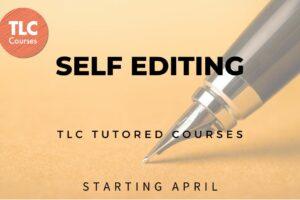How to Build a Writing Routine That Actually Works
Building a writing routine can feel like an elusive goal, especially when your life is busy with work, family, and other commitments. Actually fitting writing into your day can be challenging, especially if you’ve ever ended up de-prioritising your writing (something that comes up very often in TLC coaching sessions). But it’s possible. By understanding how habits form, understanding your personal limits, and crafting a routine that works for your life and brain, you can start making writing a consistent part of your life.
Here are some practical tips to help you establish a writing habit that’s effective and sustainable.
1. Start Small and Build Gradually
When starting a writing routine, it’s important to begin small. Many new writers fall into the trap of thinking they need to ringfence sacred hours for writing each day to make progress. But this kind of commitment with a busy life is at best challenging, at worst completely impossible: this can very easily lead to burnout. Start with manageable goals that are based on the time you can commit on that particular day, instead of a fixed word count. For example, can you commit to 10 minutes a day? Neuroscience shows that the brain thrives on small wins, so starting small allows you to experience success more often, which builds motivation. Gradually (and if you wish), you can extend your writing sessions as the habit becomes more ingrained.
2. Create a Flexible Writing Schedule
One of the biggest obstacles to building a writing habit is a lack of time. Life has a way of shifting priorities, especially for writers with family, ‘normal’ jobs (by the way, it’s absolutely fine to have a regular job! The vast majority of writers do), or other responsibilities. A rigid schedule can feel overwhelming, so it’s often better to approach your writing time flexibly. You may wish to set aside time at certain points of the day, for instance early mornings or evenings, whatever works best for the routing you currently have in place. Allow yourself the flexibility to move things around when needed. It’s okay if you don’t write every day. Aim for consistency over perfection.
3. Design a Writing Space That Works for You
While some people thrive in a quiet, designated writing space, setting one up is not a reality for everyone. Whether you have a cosy home office or a noisy kitchen table, the key is to create a space that minimises distractions and signals to your brain that it’s time to focus. We like to call this turning up at the page (something we reference a lot at our Being A Writer co-writing spaces). For some, this might mean using noise-cancelling headphones or even going outside to write – in your garden, or in a park. For others, creating a ‘writing zone’ in the living room or bedroom might be enough. If a physical space is not accessible to you, focus on creating a mental space that signals the start of your writing time, whether that’s a specific chair, a notebook, or even a specific playlist. In our Lightbulb coaching sessions for writers, we will often attend to the idea of ‘buffer zones’ – how we enter and exit space and time matters. What is your ‘entry point’ to your writing space?… How can you set yourself up for success?
4. Work with Your Energy Levels
Not every writer feels their best at the same time of day. Whether you’re neurodivergent, dealing with a chronic illness, or simply someone who’s a night owl, it’s important to understand your energy patterns. Neuroscience tells us that the brain operates on cycles, with our energy fluctuating throughout the day. Pay attention to when you feel most focused and alert. Is it in the morning, after lunch, late at night? Scheduling your writing during your natural energy peaks will help you make the most of the time you have and prevent mental fatigue. Another coaching tip we love at The Literary Consultancy when energy is waning is to ask ‘What would good enough look like?’ We can often beat ourselves up thinking we need to se up the perfect writing routine, and often that will stop us from doing the thing that matters: just writing. Just that is the important thing.
5. Set Realistic Goals and Expectations
Setting clear, realistic goals is key to maintaining a sustainable writing routine. Aim for small, achievable milestones. Saying to yourself, ‘I am going to finish my novel’ is big, vague, and overwhelming. Committing to two hours of writing time each week, or 10 minutes every day, or a short story every fortnight – these are goals that are tangible, and within reach. Celebrating small victories can help reinforce your brain’s reward systems, encouraging you to keep going. Avoid overwhelming yourself with large, unattainable targets that can create unnecessary stress, and make sure you acknowledge the wins, however small. You deserve it! Which lead us to…
6. Use the Power of Habit and Reward
One of the most effective ways to build a writing routine is by taking advantage of how your brain builds habits. According to research, habits form through consistent actions followed by a sense of reward. For example, after each writing session, take a moment to congratulate yourself, whether it’s with a fresh cup of hot coffee (or a slice of cake), a few minutes of mindfulness, a listen to your favourite song, or something else that feels rewarding. This reinforces the behaviour and helps make writing feel less like something you ‘have to do’, and more like a positive experience.
7. Be Kind to Yourself
The path to building a writing routine isn’t always linear, and that’s okay. Life happens, and there will be times when you don’t hit your goals or miss a few writing sessions. Rather than beating yourself up, try to cultivate self-compassion. This doesn’t mean ignoring challenges, but rather acknowledging them with kindness and understanding. Everyone’s journey is different, and part of developing a sustainable habit is learning how to adapt to your circumstances without judgment. If you’d like to join a writing community where we really centre self-care, then do have a look at Being A Writer: we’d love to have you join us in a space where our main aim is to create happier, healthier writing habits.
8. Take Breaks
Writing for long stretches without a break might work if you’re in hyperfocus mode, but there will always be an impact on your energy levels, particularly if you are balancing other responsibilities. Do remember to be mindful of your ‘reserves’, and to take regular breaks. Try techniques like the Pomodoro Method (work for 25 minutes, then take a 5-minute break, and repeat) or find another rhythm that works for you. Taking care of your physical and mental wellbeing through breaks, snacks and hydration, or short walks, stretching or breathwork also helps you return to your writing feeling refreshed and more productive.
9. Adapt to Your Unique Needs
Finally, it’s important to recognise that every writer’s needs are different. If you’re neurodivergent or managing a disability, it’s crucial to create a routine that works for your unique brain and body. For instance, if you experience sensory overload, it might be helpful to write in a dimly lit room or to use earplugs. If you deal with fatigue, shorter, more frequent writing sessions might work better than longer ones. Tailor your routine in ways that respect your energy limits and allow for flexibility when necessary.
You can do it!
Building a writing routine that works requires patience, self-awareness, and an understanding of how habits develop. By starting small, creating a flexible schedule, and listening to your body and brain, you can establish a writing habit that fits seamlessly into your life. Whether you’re managing a busy day or facing energy limitations, we hope that these tips might help you craft a routine that allows your creativity to flourish without overwhelming you.
Remember, the goal isn’t perfection—it’s consistency. Take it one step at a time, and celebrate your progress along the way. Writing is a journey, and building a routine that works for you is just one part of it. We believe in you. You can do it!









One Response
Very helpful- i often use the six minute writing habit every day.